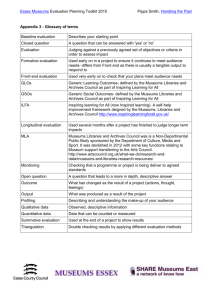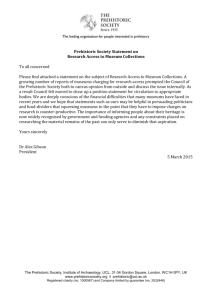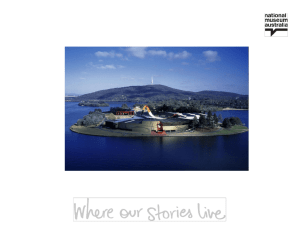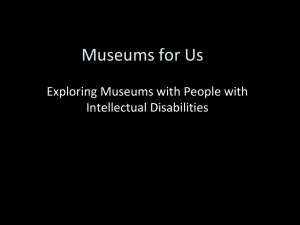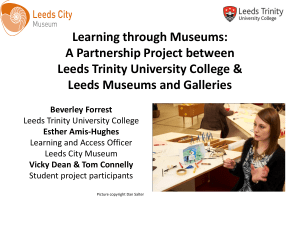Objective: to explore how the museum, in all its manifestations, plays
advertisement
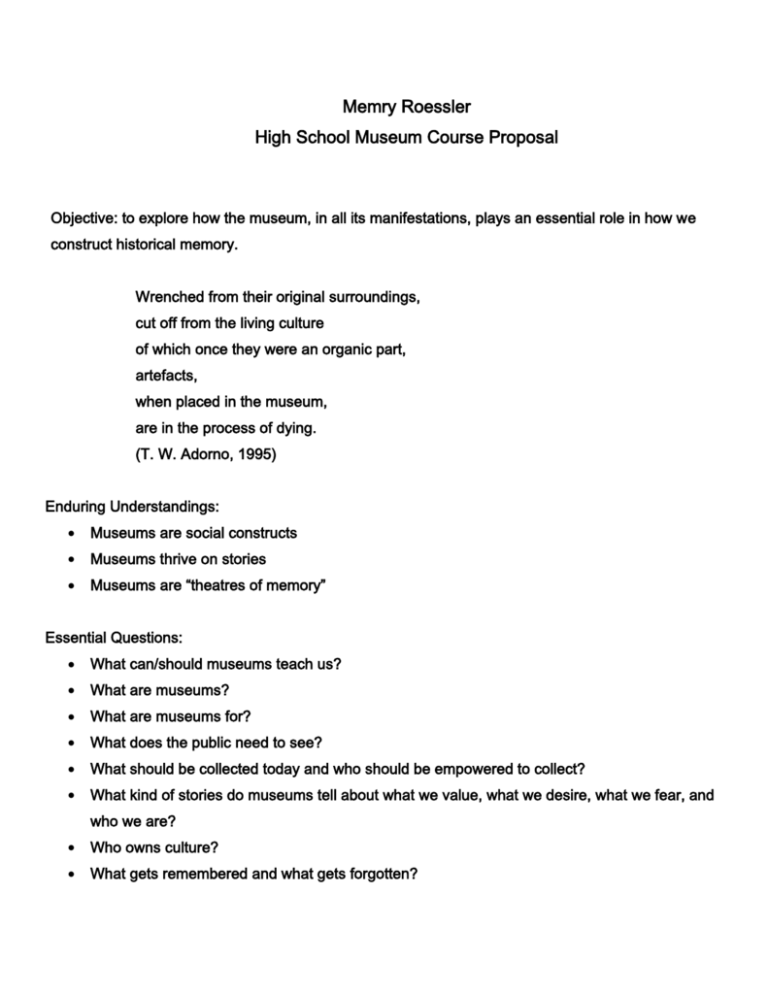
Memry Roessler High School Museum Course Proposal Objective: to explore how the museum, in all its manifestations, plays an essential role in how we construct historical memory. Wrenched from their original surroundings, cut off from the living culture of which once they were an organic part, artefacts, when placed in the museum, are in the process of dying. (T. W. Adorno, 1995) Enduring Understandings: Museums are social constructs Museums thrive on stories Museums are “theatres of memory” Essential Questions: What can/should museums teach us? What are museums? What are museums for? What does the public need to see? What should be collected today and who should be empowered to collect? What kind of stories do museums tell about what we value, what we desire, what we fear, and who we are? Who owns culture? What gets remembered and what gets forgotten? What is the role of memory? Can museums have a space for memory? Personal or collective? Course Structure: Definitions/types (here students would begin to see the contested nature of museums) History of museums both in U.S. and Mexico (Re)Construction of the past Objects and meaning Production of knowledge Representation Museums as sites of struggle Dispossessed histories (the voiceless and invisible) “Hoarding” Readings and field trips to regional museums would support the curriculum. I would invite guest speakers (curators, researchers, private collectors, etc.) to speak to the students throughout the course. My idea would be to culminate our study with a trip to Mexico City and Oaxaca to visit a number of diverse and significant museums. Some Resources (provided by Stephanie Wood): “Museums” (Wikipedia; includes a list of museum types, and more) http://en.wikipedia.org/wiki/Museum “14 Key Issues in the Future of Museums” http://www.lemproject.eu/in-focus/news/14-key-issues-in-the-future-of-museums “Why are Museums Important?” http://essay.maureensie.info/why-are-museums-important/2/ “Museums and Controversy” https://beardocs.baylor.edu/xmlui/handle/2104/5078
